I’ve never seen a passenger decline to sit in an exit row seat before because they’re unwilling to help in an emergency – but one passenger turning it down and opting for less legroom during boarding was caught on film.
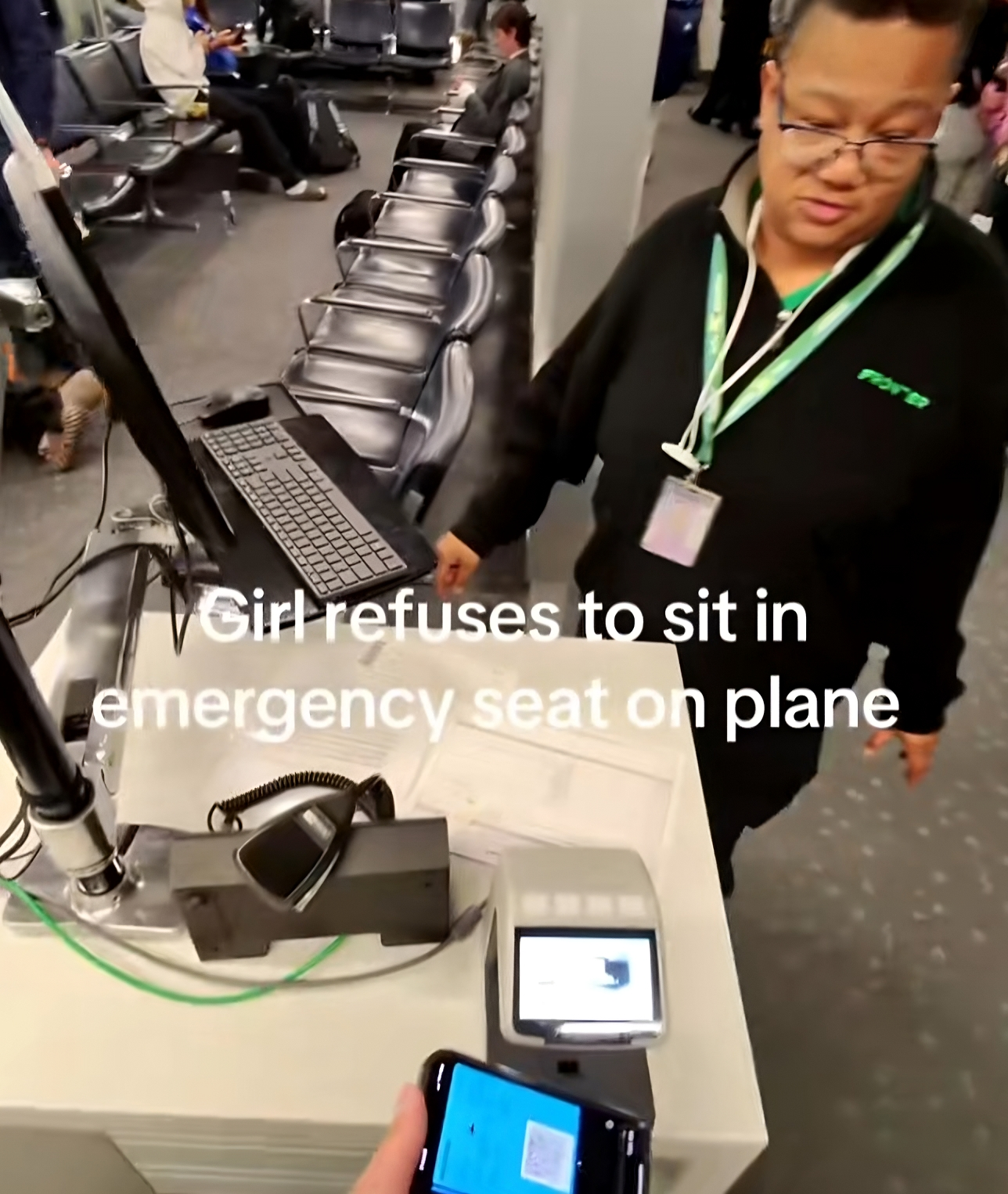
Exit row seats are usually the best seats in coach, with endless legroom. Sometimes they don’t recline (if they’re actually in front of the exit). And sometimes the tray table is in the armrest. But they’re generally highly desired – especially on an airline whose regular seats offer very little space – like Frontier Airlines. But you have to be ‘willing and able’ to assist in an emergency to sit there.
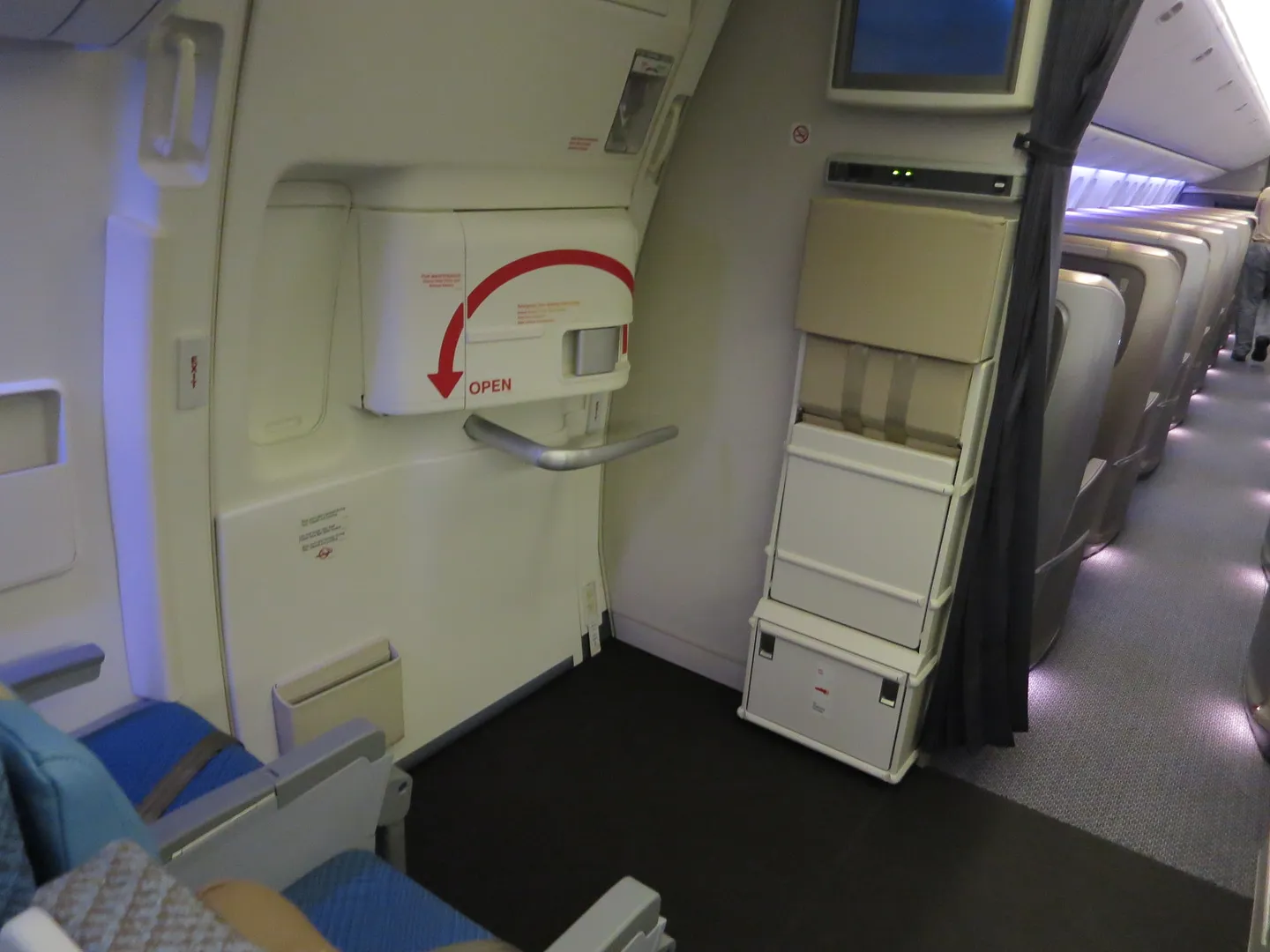
A Frontier gate agent near Denver airport’s gate A63 checks a woman’s boarding pass and says, “You’re in the emergency row. Are you able and willing to assist in the case of an emergency?”
She answers “No.”
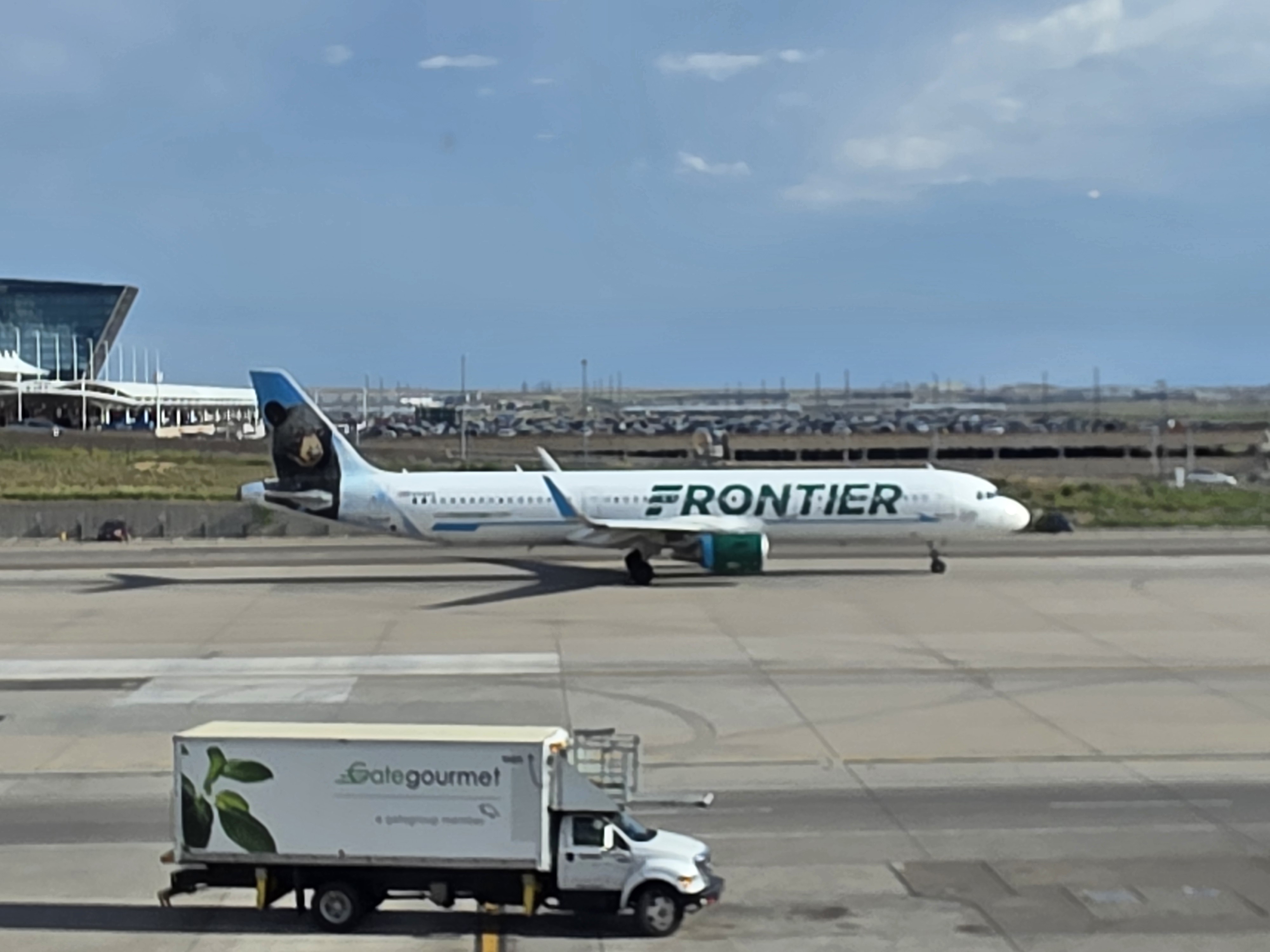
Frontier Airlines In Denver
He repeats the question; she says “No” again. He then instructs her to change seats. And he muses to himself, “I’ve never heard anybody say no — was a first.” A clip of this happening is captioned,
Girl refuses to sit in emergency seat on plane.
@jaycobank She said no I’m not #flying #airport #no #seat #fyp ♬ original sound – Jayco Bank
This appears to be a Denver – Cincinnati flight, Frontier Airlines 3286, based on the boarding pass and the clip was posted to TikTok on September 8, consistent with a departure on the 7th or 8th.
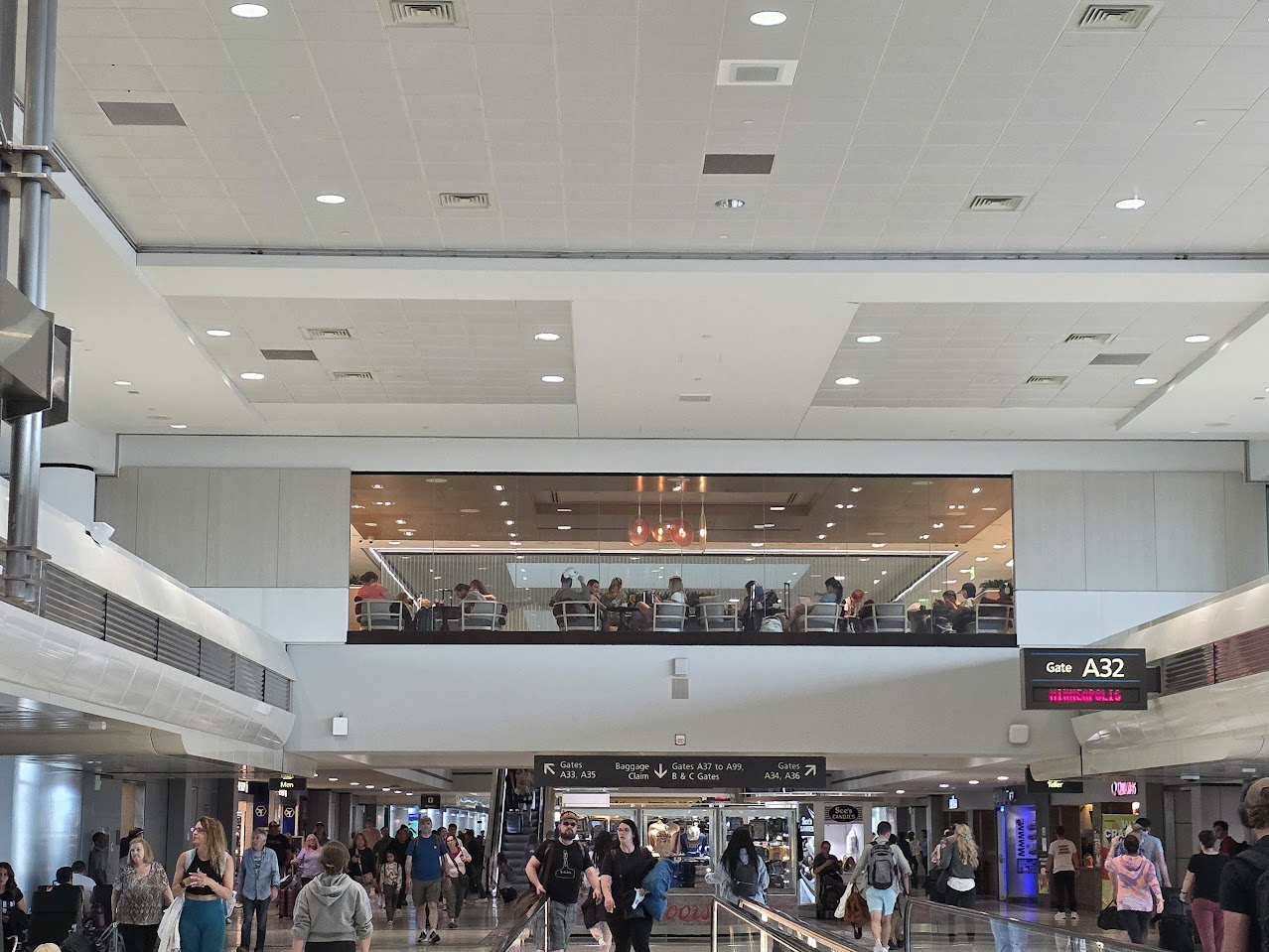
Denver A Concourse
Exit row seating is governed by 14 CFR § 121.585. Airlines have to determine whether each exit row passenger is “able and willing” to perform specific functions if needed (locate, recognize, operate, and stow the door; assess slide, help stabilize it).
An airline can’t seat someone in an exit seat if the person is under 15 years old, cannot understand crew commands (in English for U.S. airlines), cannot adequately communicate orally, lacks sufficient strength, mobility, vision or hearing, or has responsibilities such as caring for small children that would prevent performing duties.
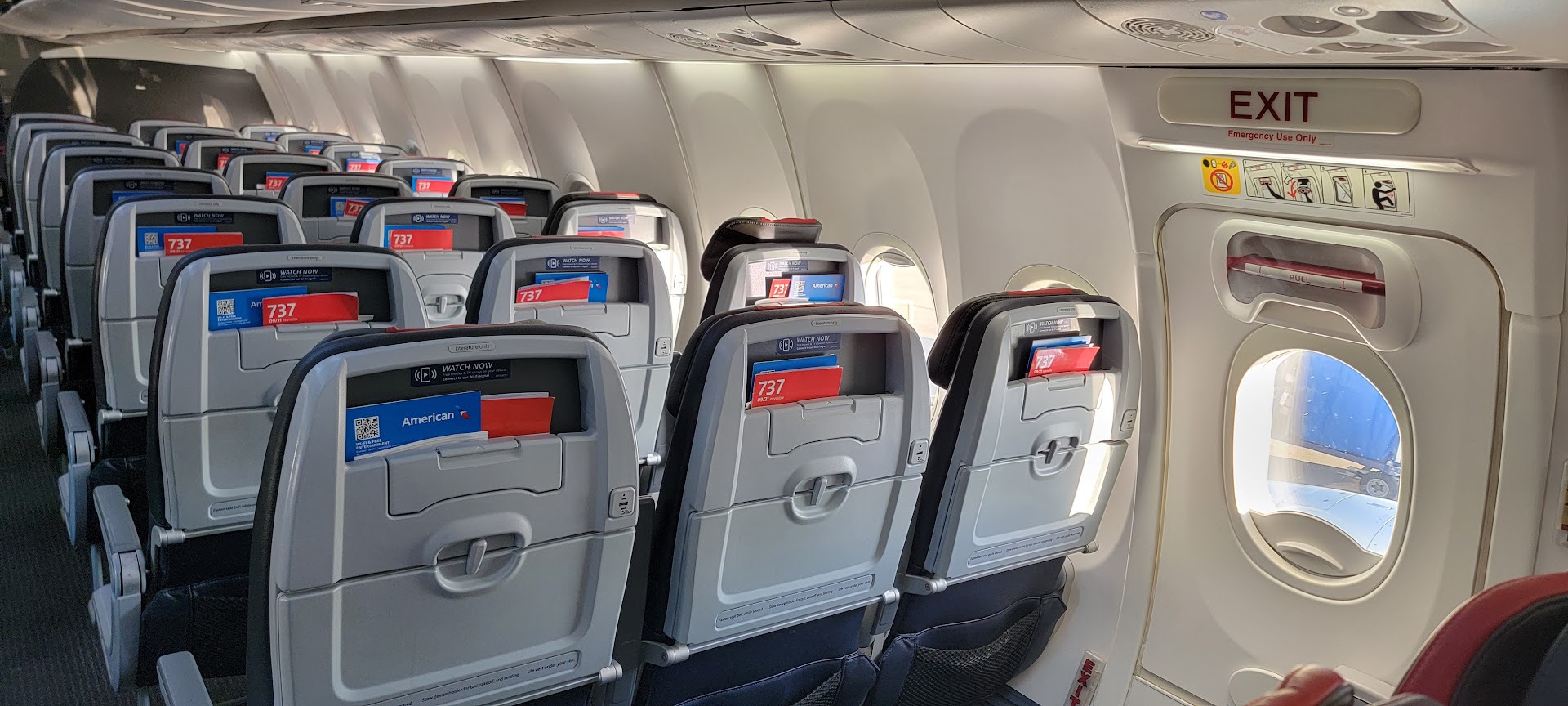
If a passenger doesn’t wish to perform these functions, the carrier must reseat them. The passenger does not have to disclose why. Denial of transportation is permitted.
There have been exit row passengers who failed to help in an emergency. For instance,
- USAir 1493 (LAX runway collision, 1991): The right over wing exit occupant “froze” and didn’t open the exit door. Another passenger climbed over, opened it, and pushed her out. The NTSB report noted the delay at that exit hampered the evacuation.
- American 1420 (Little Rock, 1999): The NTSB evacuation study describes exit row passengers at over wing exits who abandoned or couldn’t not open the door until others stepped in.
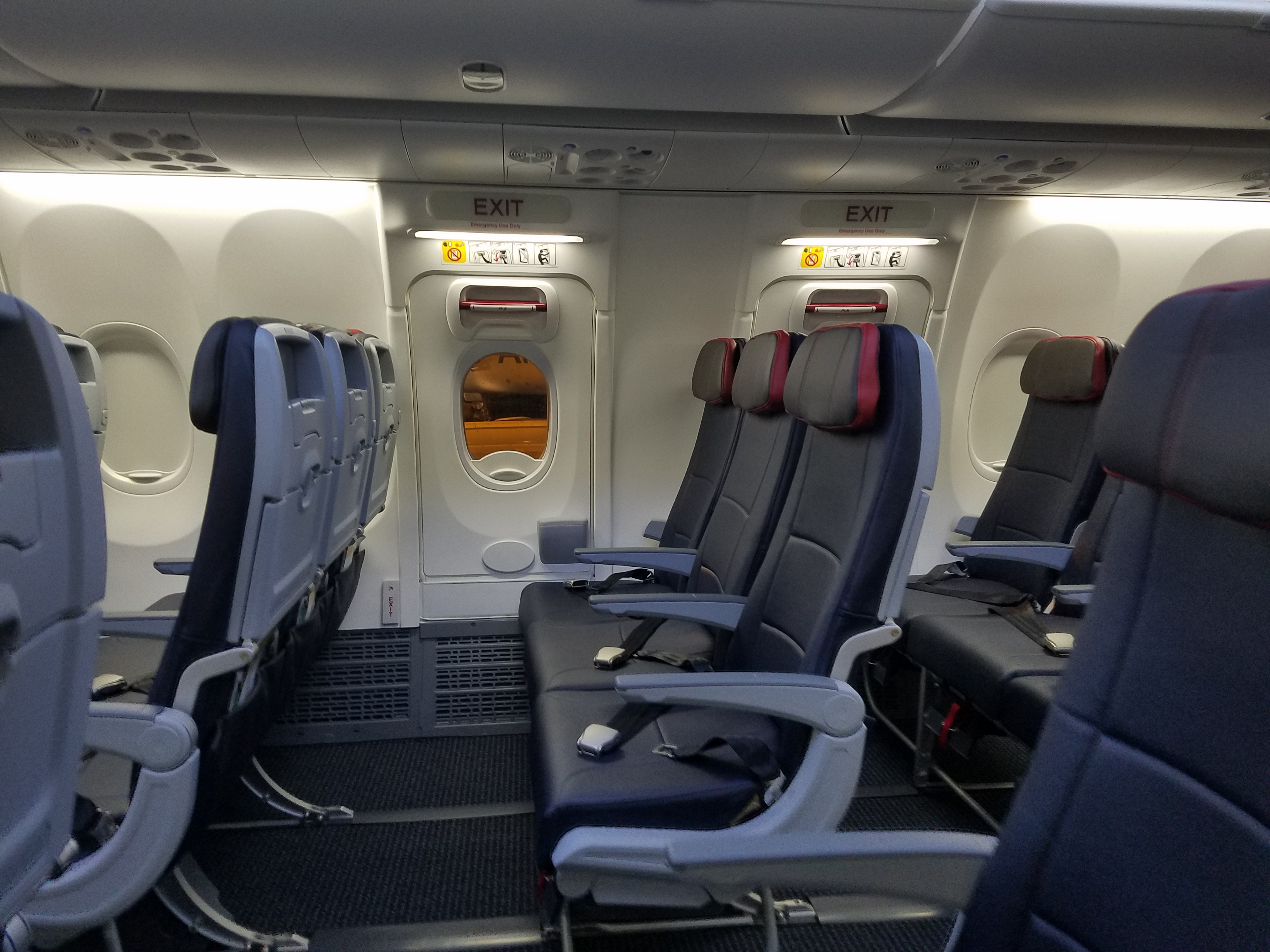
However, I can’t find a single documented case where a passenger was prosecuted for failing to assist in an emergency after they agreed to do so. Civil liability is theoretically possible under negligence theories (negligently failing to perform the duties and thereby causing harm). But that’s just a theory, not actual case law.
It’s not clear how often this actually happens. There’s not DOT tracking of “exit row refusal/failure” statistics. The agency’s Inspector General has
Interestingly, another Frontier Airlines passenger was arrested last year “after she refuse[d] to deplane during argument with crew over exit row instructions.” Another passenger demanded preboarding due to an injury – but then was forced to give up their exit row seats.
NEW: Frontier passenger makes entire fight deboard after she refused to comply with exit row instructions, gets arrested.
The woman allegedly refused to help save anyone in case of an emergency before yelling at a flight staff.
"Oh, I'm not going to save anybody. If something… pic.twitter.com/c25TTiQngZ
— Collin Rugg (@CollinRugg) May 20, 2024
How necessary is any of this help at the exit row, though? A review mandated by the FAA’s 2018 Reauthorization concluded that having someone in an exit row to assist in an emergency was not actually necessary – exit rows don’t need to be occupied for safety reasons and airlines don’t have an obligation to fill those seats.


I can think of any number of reasons why a person might honestly refuse to perform the duties of an exit row passenger. For example, if a person booked a seat a few weeks before traveling and chose an exit row seat (this can be done if you pay extra fees at purchase), then forgot that they were in an exit row when checking in online. Suppose that between the time the person chose their seat and the date of the flight, the person got injured, and their doctor said they could not lift anything over 5 kg. If this were me, and the flight were full, I would wait until the FA came to me and say, “No, I am not able, please re-seat me.” I hope this would not lead to an arrest.
However, I read the tweet and it’s clear that the person was not in this situation.
I think some of the wild animals on the tails of Frontier planes are smarter than some of the occupants inside the plane.
I rarely sit in an emergency exit row because I generally choose a seat early and the exit row seats cost extra. Once in a while I am in one. If I am in one, I observe the door mechanism and review the instructions thoroughly. I hope to never have to due the door opening duty but I am prepared. I hope everyone sitting in the takes their responsibility seriously.
I would guess the norm is for people to agree because none of us want to contemplate a worse case scenario and we ALL know the odds are against it…never the less, our beloved flight crews train for what is never going to happen to any of us and know well what to do just in case. Casual fliers know that AND DEPEND on that. But let us remember that our crew staff undergo refreshers, and it IS their job to know what to do. I have often wondered IF those accepting or seeking out the EER really could do it in an emergency. Even myself. It’s my understanding those doors ARE heavy. And unless you’ve been trained, it will be your first time and may come as a surprise, and you may even in a panic want to throw that baby out the exit not bring it in and put on the seats. Not to mention that no matter how someone LOOKS doesn’t convey if they are up to the challenges…their mental/emotional health, possible fear of flying, or over reacting in an emergency, an invisible internal condition, something that limits strength, anything could impact this. One would hope someone else in the row who agreed would pick up the slack. So I’m not so sure someone saying “nope” is so awful. They’re being honest, and wouldn’t the rest of us prefer they be seated elsewhere? I’d also expect that depending on where they were, a crew member would be ready to intervene. But the rest of us are newbies who’ve never done it before. Often wondered why there isn’t a little preboard test at airports, where one could be shall we say certified for that role, a volunteer so to speak. And maybe the airlines could enter that in the system so those folks get assigned the seat, and get a discount for doing so.
I often wind up sitting in the “cramped middle in back,” due to having to book flights on short notice. Like many things, you get used to it after a while.
Is this one of those ‘sovereign citizen’ types at it again? @Mike P, that you?
Why would the person behind her be recording that interaction? Seems fishy, at best.
@Robin:
Ask and you shall receive. While catching a Finnair flight from HEL to FRA. (don’t ask, it was part of our river cruise ticket. We sat in steerage. The wife booked the flight and seats. Yes, we were in an exit row. Smart wife knew to take the second exit row, so we could stretch, and recline.
And lo and behold a charming Finnair FA came to our row, and asked me if I understood what I had to do. She asked if I spoke English, since I was not a blond or 6′ 10″. I said yes, and she asked me to demonstrate how without actually opening up the door. Since I clearly read the instructions when I sat down, I aced the test. She then went on to present how to do it to all 12 people sitting in the exit row. It does help to fly a quality airline, even if it didn’t add to my LH Senator status.
I had it happen a small number of times in my career.
It was almost always a little old lady who’s family thought she would like the extra space.
The passenger was asked, “Are you able AND willing to assist in an emergency?”, and she said, “No.” Maybe she has some disability or medical condition which renders here unable to assist, not unwilling.
Regardless, she admitted it before boarding the plane, and thus was able to be re-seated in a non-exit row. I see no reason to shame her for that.
On a flight recently I was assigned the ext row and the gate agent asked if I was willing to assist, etc, but then added that I had to remain on the plane and assist other passengers exit the plane before I could leave! I never heard that before, was pretty sure it wasn’t true, so just said yes and boarded.
Props to her for being up front about it. I see many more stories of people giving the FA shit after boarding when they also ask. Wish more passengers were like this one.
@ Paula… the very definition of willing to assist.. meaning help the others out..
but human nature is what it is.. every person for themselves!
@doug — Is it really ‘human nature’ to be ‘selfish’? I’d argue, with the way we’ve built our modern societies, we’re more ‘collective’ in the aggregate, kinda like a colony of ants, on a global scale. See, we’re more like bugs! Yay… (Oh, someone from the 0.01% who owns nearly all of our media just told me to STFU and fight my fellow citizens over culture war nonsense so as to prevent solidarity and allow those few at the top to grift more. Anyway, I think they want a fourth megayacht, which seems… reasonable and necessary.)
I think this falls into the old “did you pack your own bags” question, useless and toothless. As someone who sat in Southwest’s exit row / window seat 90% of the time, what real “job” is there to do other than open the exit door and get the hell out of the way? Otherwise you’d be blocking the aisle and door yourself, would you not be? If someone froze at the door, I’m sure the nexts in line would push them the hell out.
Once in great while, the FA would actually impart two helpful pieces of info, whether the door was a “plug” type that needed to be pulled inside and thrown out manually (which takes physical effort) or whether they flipped up automatically and stayed attached to the airframe. And not to open the exit if you saw flames on the outside of the window. But that was rare.
If they were dead serious about the special needs of the exit row egress, they would take the 2 or 4 window seat overwing aisle seat passengers and make sure they were substantially briefed, physically able and somewhat intelligent.
Last century, it wasn’t unusual for me to be oferred an exit-row aisle seat in Y at checkin. I regularly turned it down and took my assigned regular aisle seat. I figured that since I’m a shoter than average male, I’d leave it for others. Of course regular Y pitch was better back then.
@This comes to mind — Huh, a ‘shorter than average male,’ you say? Wasn’t that a line by @Un a few months ago. Wait, is this one of your alternate personas on here, too?! Wow… he’s everywhere!
I’ll open the door, exit, and then “assist” from the wing, especially if there is smoke or fire.